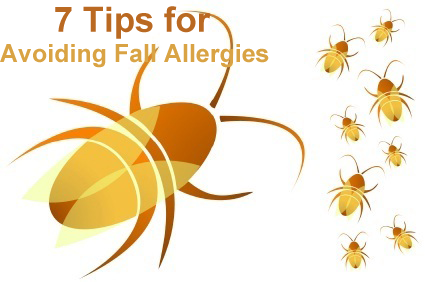7 Tips for Avoiding Fall Allergies
How to Avoid Fall Allergies
High-Efficiency Furnace Filter
Installing a high quality furnace filter can have a huge impact on your home. If you get a filter with a minimum filtration rating of MERV 8, small particles like pollen, fine dust, and pet dander will get caught.
Close Your Doors and Windows
It can seem impossible to avoid exposure to pollen when the count is high. It doesn’t help that pollen can travel up to 400 miles from the source. Reducing the pollen count in your home is not too difficult. Close your doors and windows on days when the pollen count is high.
Wear a Mask
No matter how you are feeling, outside work is waiting for you. Particulate respirators, such as an NIOSH N95, can help you block particles that irritate your allergies.
Clean Your Carpets
The fibers of the carpet trap allergens and bacteria causing them to build up over time. Household bacteria and allergens are cleared from the carpets and the air with the process used by A Brighter Day Chem-Dry. Chem-Dry’s Home Healthy Study is impressive. Learn more about it by clicking on the link.
Get a HEPA Filter Vacuum
You probably won’t be getting your home professionally cleaned every week. Between professional cleanings, it is recommended to vacuum your carpets once or twice weekly with a three-stage HEPA filter vacuum. Reducing dust, pet dander, dust mites, and other allergens from the surfaces in your home, this machine can help you maintain the health in your home the best.
Shower Before Bed
Throughout the day, your hair can catch smoke, dust, pollen, and mold. The transfer of these allergens from your hair to the surface of the pillow when you retire at the end of the day makes it possible for the allergens to come in contact with your face. Minimize night-time allergy symptoms by taking a quick shower before lying down to bed to rinse the allergens from your hair.
Allergy-Proof Your Bed
Put allergen-proof fabric covers on your box springs, pillows, and mattresses to improve the health of your bed. This highly recommended precaution will help guard your bed from dust, dust mites, and their waste.

